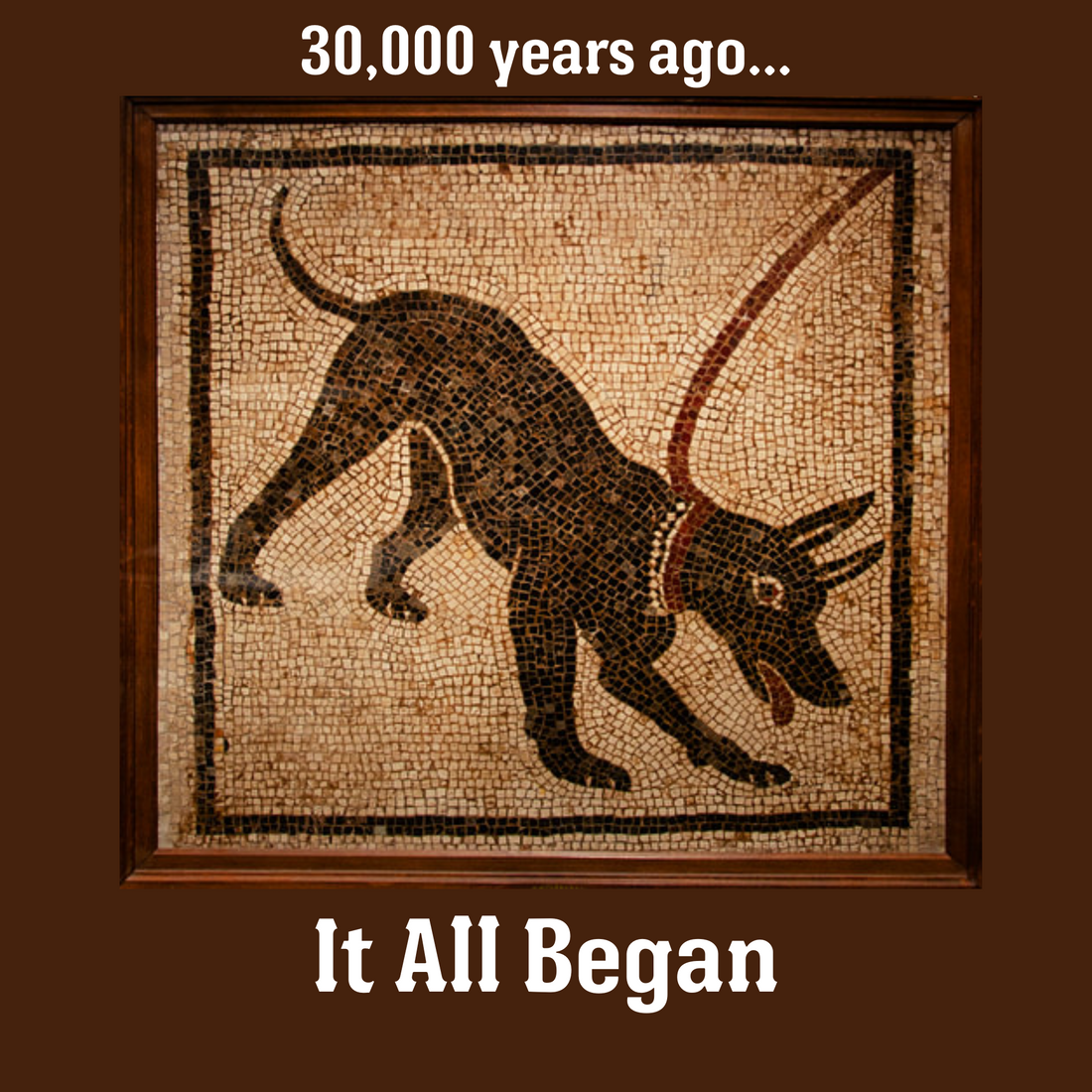
Our furry friends 30,000 years ago
Share
It All Began 30,000 Years Ago

With a surplus of meat, humans potentially discarded it close to camp. Brave, genetically diverse dogs would have come to take advantage of ancient human scraps to get a good belly full of food. Over time, they would become accustomed to humans and slowly, steadily started asking for attention and love, too. What makes this relationship so special is that no other “pet” or domesticated animal was such until after the development of agriculture, including the fancy feline who wasn’t domesticated until about 10,000 years later. The next time someone asks you “which is better: cats or dogs?” you can at least say that dogs come first.
The way dogs have evolved since their domestication is complex and multifaceted depending on which continent, what group of people and how the dogs were used within tribes — for example, dogs used for hunting developed keener senses, dogs used for sledding developed stronger muscles around their legs and backs, and dogs used for looking at developed fluffier coats and wider, browner eyes (that last one is just a guess). Evolution like this is a very slow and unpredictable process, so our ancestors had nearly no idea what their furry friends would look like today.
The fact that humans and dogs have stuck so closely together in 30,000 years, that they have grown, changed and developed together in all that time is pretty special. You can’t help but hold your precious pup tighter thinking about your great, great, great, great … great-to-the-power-of -1200 ancestor and their great-to-the-power-of-1200 ancestor snuggling together by a fire.
Looking forward to the future? If you want to keep your pup happy and healthy, to ensure there’s another 1200 generations of dogs and humans together, try our Bella and Boots pet food blends. Despite the major changes that our furry friends have gone through, what’s going on inside their belly is pretty much the same as it was before they met humans and their food needs to reflect that. Our food blends keep their teeth, guts, heart and brain healthy, satisfied and bursting with life.
If you want to do your part to ensure your great, great, great, great-to-the-power-of-1200 grandchild and their furry friend can live a good life together, order Bella and Boots online or in-store at Eumundi Meats.
